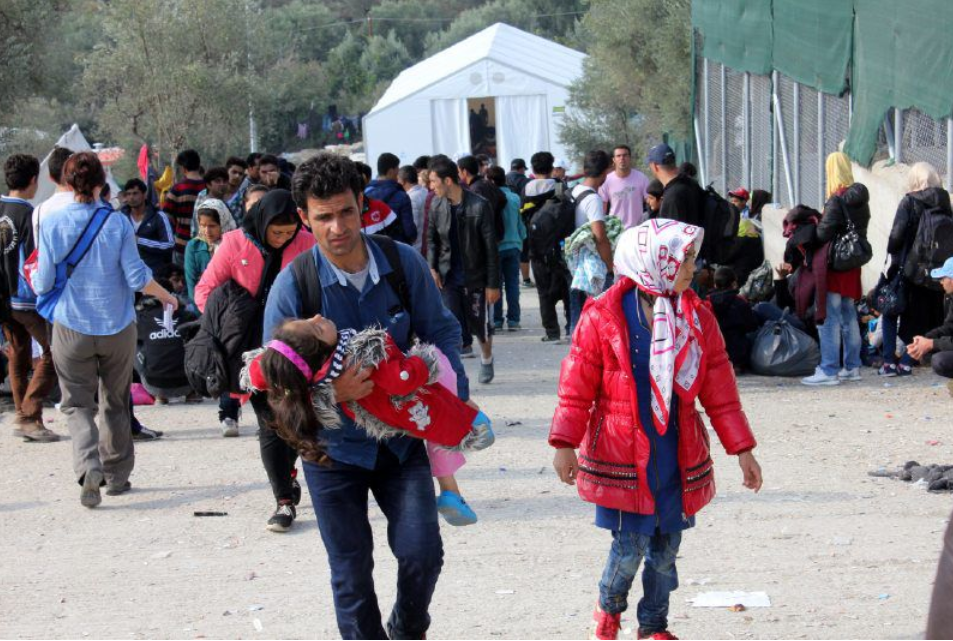Challenges in providing adequate reception for asylum seekers across the EU: Red Cross EU Office Conference
Brussels, 16 November 2015 – Tomorrow, the Red Cross EU Office will hold the conference "Emerging challenges in the European Union asylum reception systems” at the Permanent Representation of Sweden to the EU in Brussels.

Since the beginning of 2015, over 800,000 migrants have entered the EU. With 85% coming from the world’s top ten refugee producing countries, the number of asylum applications in EU Member States is on the rise. Reception systems across the EU are therefore under unprecedented strain. With the onset of winter, sustainably providing adequate reception conditions and adapted services is one of the main challenges faced by all Member States. This situation increases the risks for asylum seekers that belong to particularly vulnerable groups such as children, people with disabilities, the elderly, single parents with children, and persons suffering from mental health problems, including victims of torture and other trauma.
"Identifying vulnerabilities and addressing the special needs of arriving asylum seekers is a humanitarian challenge for the European Union as a whole” says Leon Prop, Director of the Red Cross EU Office. "We need to ensure that they are received and protected in accordance with their rights, even in cases of high numbers of arrivals. Some special needs are obvious and easily detectable, but others are much less visible, or completely invisible to the eye. Without efficient systems throughout the EU to guarantee that the special reception needs of asylum seekers are identified and properly addressed at all times, they could end up never being detected or tackled, with terrible consequences for the wellbeing and dignity of especially vulnerable asylum seekers.”
High-level speakers from the EU institutions and agencies, the United Nations, the Red Cross and other civil society organisations will analyse the current migration context and consider the future of asylum reception systems in the EU. Discussions will focus on two of the key challenges that the EU needs to address: implementation of common EU rules and standards across all Member States, and increased solidarity to support fairer sharing of responsibilities across the Union.
Jean Lambert, Member of the European Parliament, stresses that adequate reception conditions are essential to the functioning of fair and efficient asylum procedures. "Effective transposition and application of the existing legislative framework are key to ensuring consistency and the highest possible reception standards across the entire EU – something which remains a major challenge.”
Providing adequate reception conditions on a long-term basis is crucial. It is also vital that the specific needs of those who have turned to Europe for protection and safety are duly taken into account. In this context, the situation faced by unaccompanied minors is of particular concern. "Sweden is the most common destination in Europe for unaccompanied minors at the moment. Many of them were forced to leave their homes because of conflict, violence, persecution or repression, and some have been victims of torture or ill-treatment. They often have no other choice but to undertake perilous journeys to reach safety,” underlines Sara Fridlund from the Swedish Red Cross. "Unaccompanied minors require specific attention, safety, adequate support and schooling to ensure their well-being and give them an opportunity to build a better future. Their right to family reunification is also essential.”
Conference speakers will also examine emerging trends and challenges related to the reception of asylum seekers across Europe. In view of the current situation in frontline Member States, participants will discuss the future of the Dublin Regulation and the implementation of the EU’s relocation schemes. "When entering the EU, asylum seekers must find a welcoming environment and an immediate response to their basic needs” says Andrea Vonkeman, from the United Nations Refugee Agency. "We need a coherent response based on solidarity from all Member States.”
Follow the conversation on Twitter using #ProtectHumanity.
Protect humanity – Stop Indifference
In September 2015, the International Federation of Red Cross and Red Crescent Societies launched a global campaign: "Protect Humanity – Stop Indifference”. Through this campaign, we are calling on States to ensure that the humanitarian needs of all migrants – without discrimination and irrespective of their legal status – are adequately addressed.
Stand in solidarity with vulnerable people on the move and add your voice to our petition here. The petition aims to make the responsibility to #ProtectHumanity a universal one. It will be presented to States at the 32nd International Conference of the Red Cross and Red Crescent in December 2015.
Background documents:
Red Cross EU Office recommendations on asylum and migration in the European Union October 2014
Contribution to the European Commission's consultation on the post-Stockholm agenda 21 January 2014
For media inquiries, please contact Eva Oyón on: eva.oyon@redcross.eu or +32 2 235 09 22

